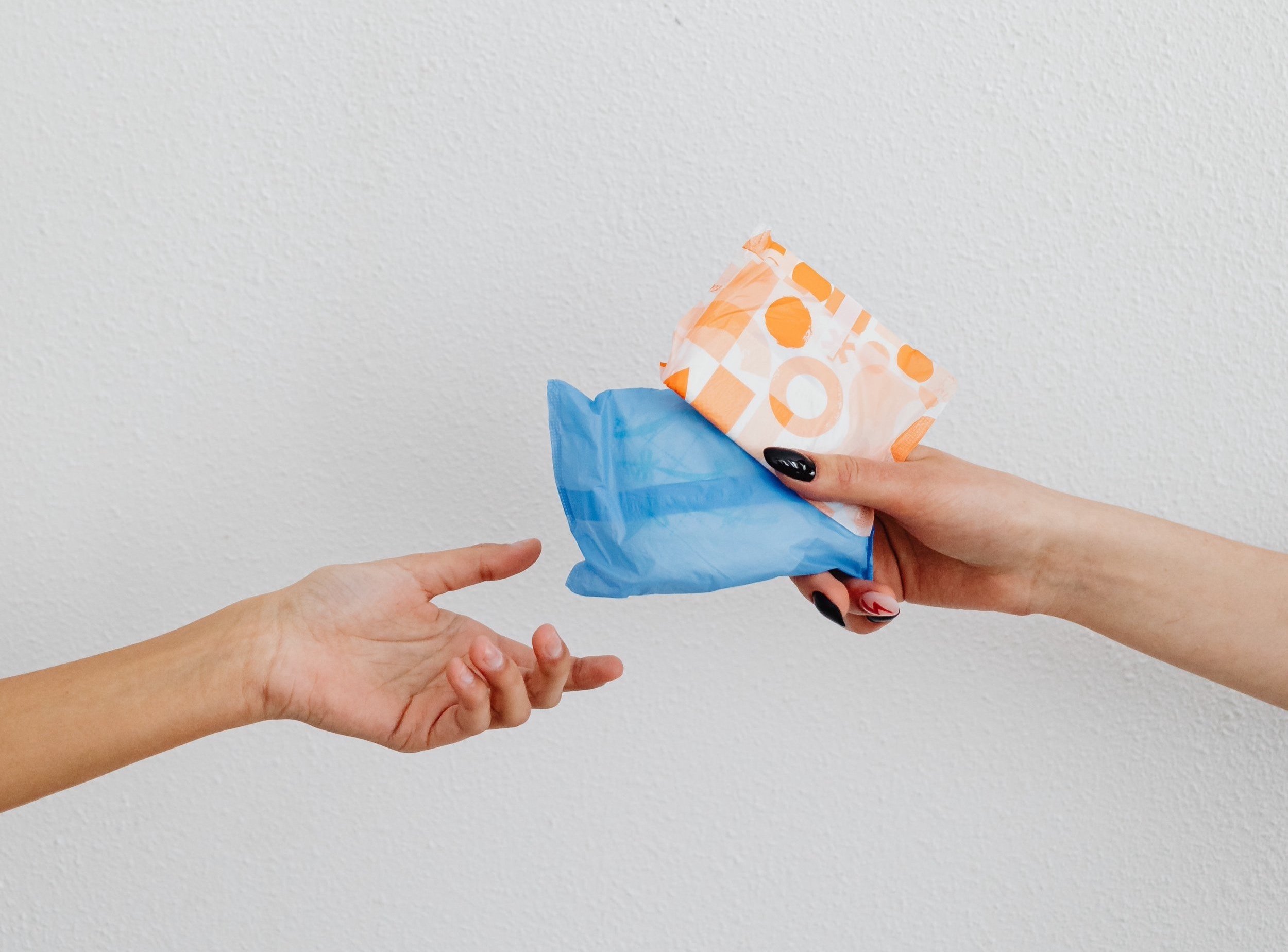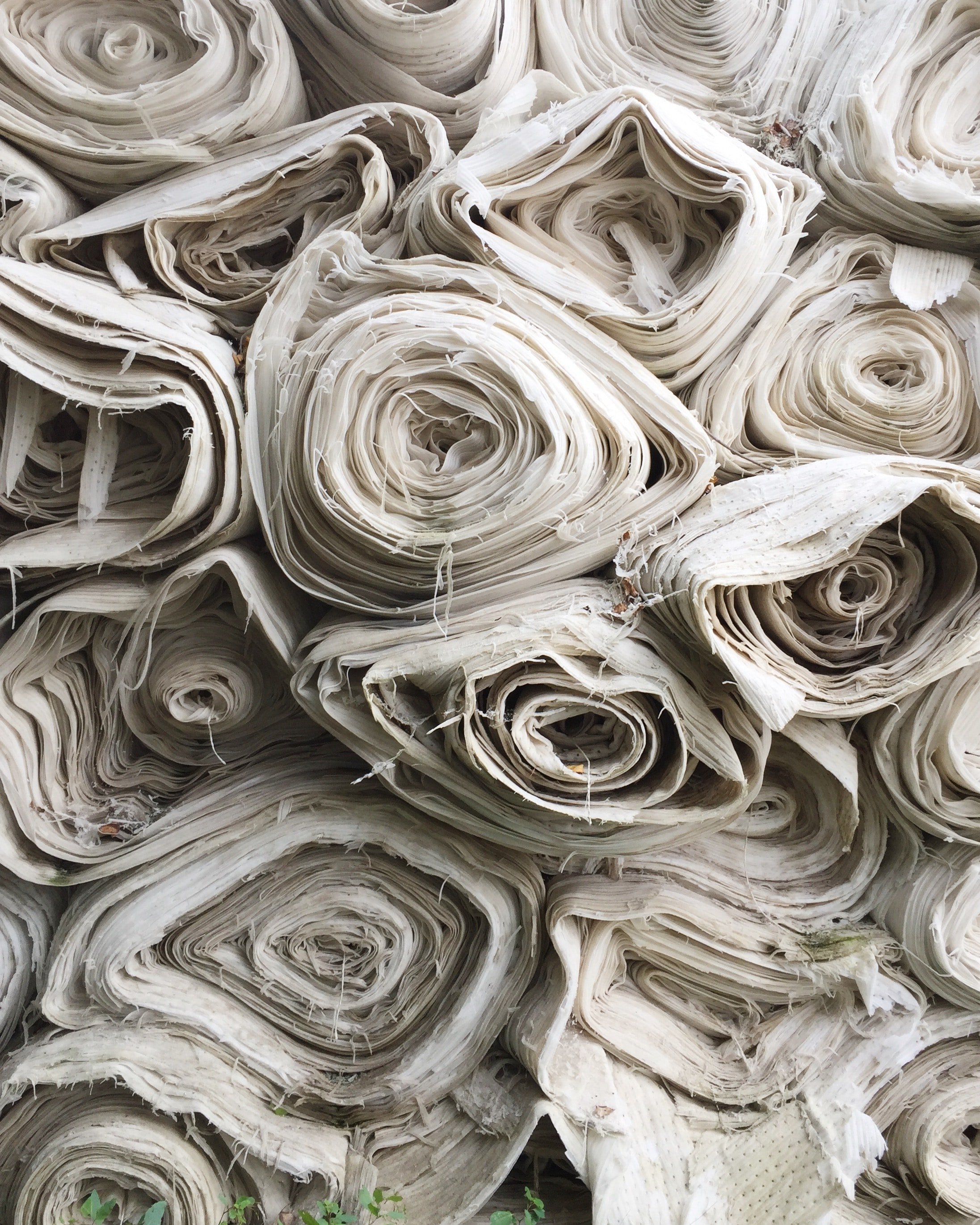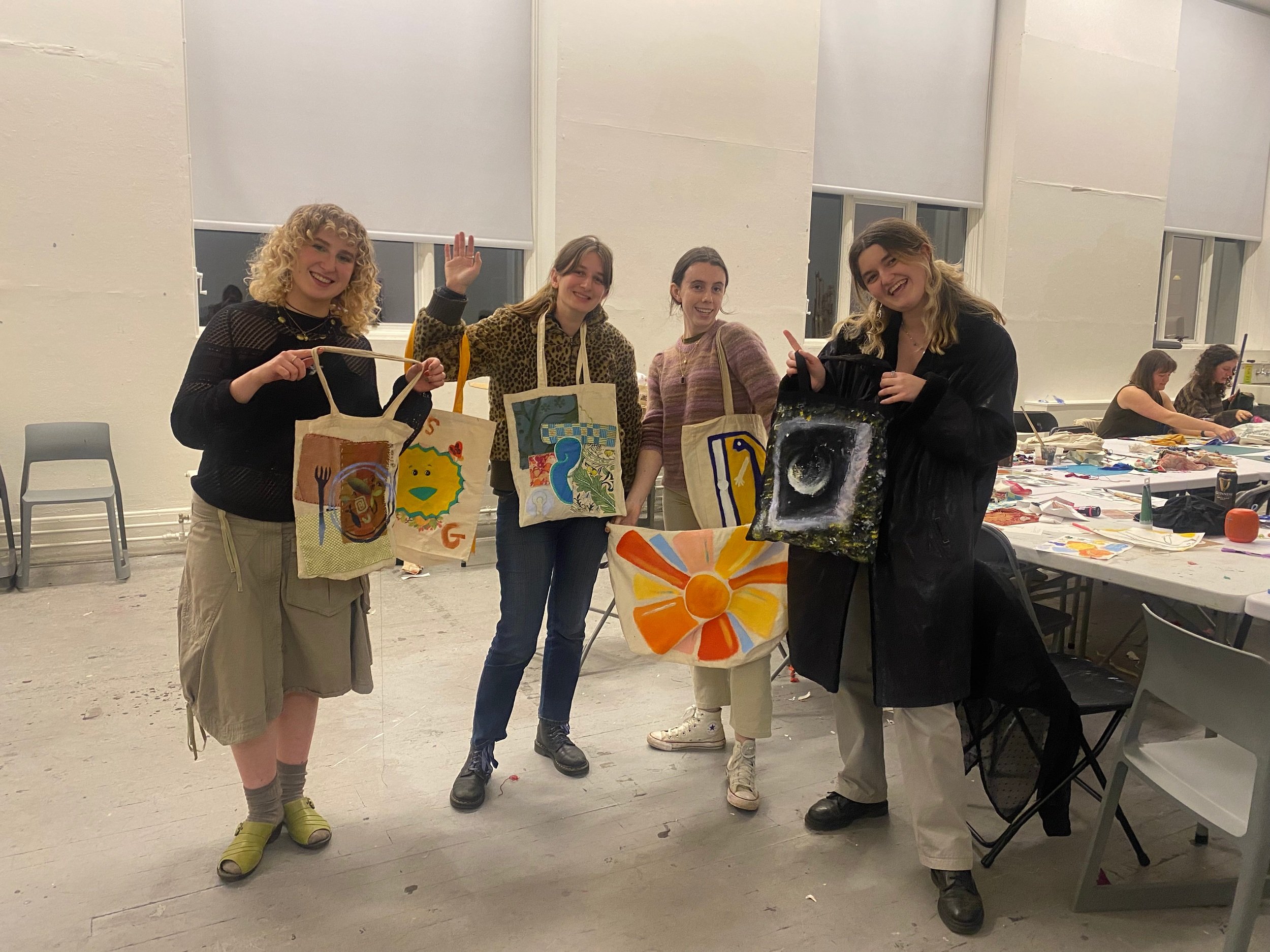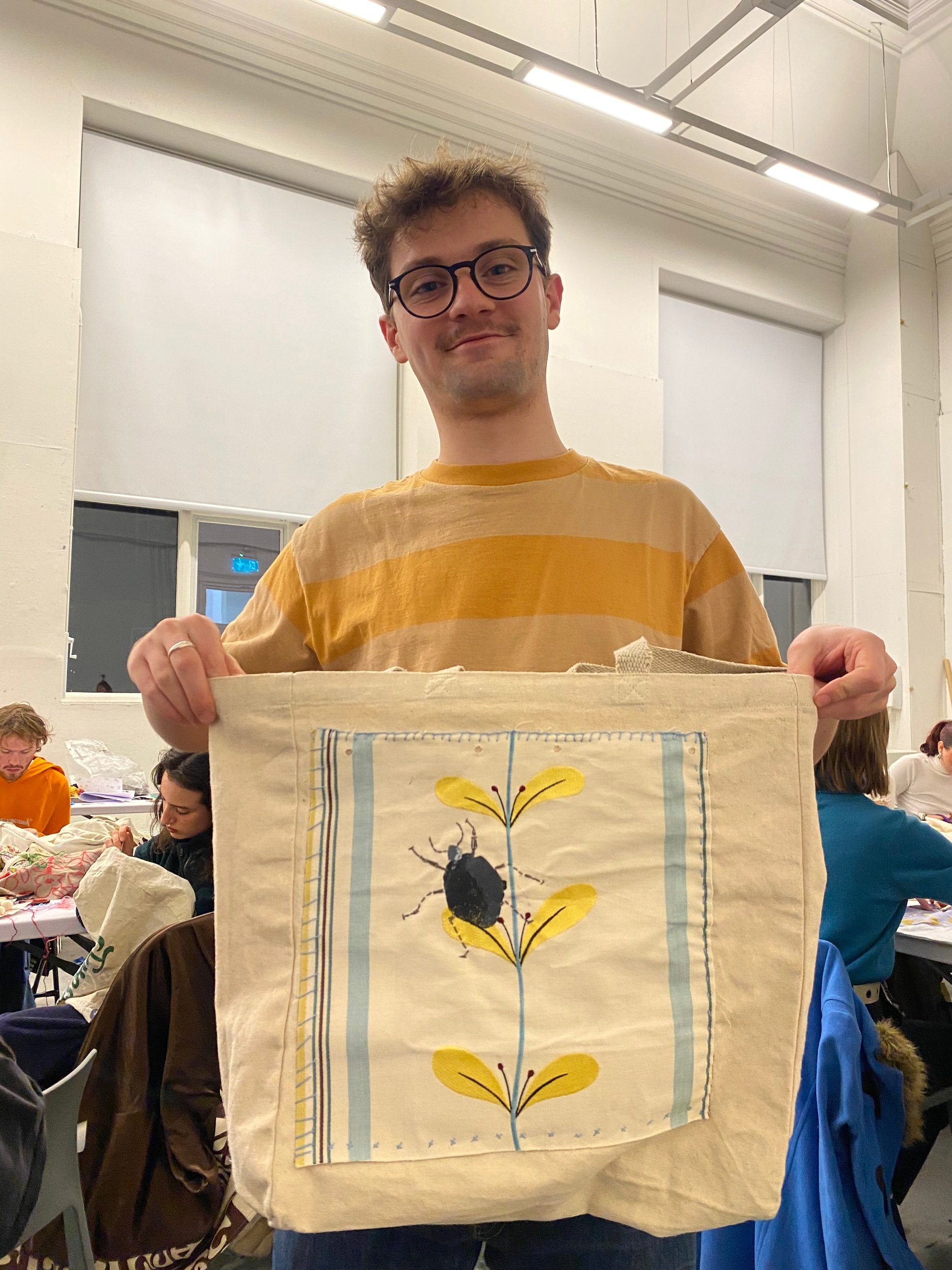
Protecting people and planet
Disposable pads are harming the environment.
Each year, 2 billion period products (around 200,000 tonnes) are flushed down toilets in the UK, accounting for 35-47% of all household products. In India, the concern for period product waste disposal is even greater. The lack of separate collection for menstrual waste means products often as processed as dry waste, being burnt or dumped in landfills. When burnt, toxic chemicals such as dioxin are released, causing issues related to reproduction, human development and immunity. These dioxins stay in the environment for many years.
Disposable pads can contain up to 90% of plastic, equivalent to 4 plastic bags. These pads can take centuries to biodegrade, creating huge amounts of waste.
It is not just plastic pollution which is concerning, but the carbon footprint associated with traditional sanitary products. On average, 8.9kg of CO2 is produced per person using disposable period products, per year.

Micro plastics from disposable pads stay in the eco-system for hundreds of years
Harmful chemicals from microplastics can enter water sources when disposed and can be toxic to marine life including fish and mammals. Eventually, these toxic substances can then be passed down the food chain (a process called bioaccumulation) and ingested by humans that consume fish.
A better alternative
Using one of our full cycle kits for 2 years, saves 572 disposable pads from landfill,
This is the equivalent to 2,288 worth of plastic bags.
Using 142% fewer pads over a lifetime.

Our packaging is made using textile offcuts which would otherwise go to waste.
Our pads are made from organic cotton.
Organic cotton is estimated to be grown using 91% less water than non-organic cotton as it is grown in rain-fed areas which reduces reliance on water supplies.
Improves soil fertility - organic growing methods mean crops are rotated which keeps nutrients in the soil, pesticides are not used and soil can remain a key carbon store, benefitting the climate. Organic cotton reduces water pollution by up to 98%.
Produced chemical free so it is not harmful when it biodegrades. Organic cotton should only take around 5 months to biodegrade, returning its nutrients back into the soil.
Polyurethane laminate is the coating of Sanitree’s pads which allows the products to be waterproof, and extends its durability.
TPU is the laminate which is heat bonded with the polyester fabric - this heat bonding process uses only heat and pressure, thus, it is low in toxicity and more sustainable that the previous chemical bonding process. The absence of chemicals allows PUL to biodegrade - when composted, this process takes around 4-5 years.
PUL is also extremely breathable in comparison to plastic alternatives - this allows the transmission of vapour which increases body temperature regulation and decreases likelihood of infections.

Sustainable means ethical
Not only does the switch to organic cotton benefit the environment, it also benefits those who produce it. Toxic chemicals associated with traditional cotton farming can cause major health issues, with studies finding links between these chemicals and cancer, neurological diseases and reproductive issues.
Once crops are harvested, traditional cotton is usually treated with more chemicals such as bleach and dye, these are harmful to skin and to the workers who produce them. Organic cotton is manufactured with natural alternatives, making it hypoallergenic.
Our beneficiaries in Jaipur
Empowering women is key to Sanitree’s mission within our production - this means creating a safe, fair and enriching environment for the women who produce our pads.
The women we employ are all from vulnerable backgrounds and are either single earners in their household, widowers or domestic asbuse survivors. In order to allow them to complete daily household chores and childcare, the women are given the opportunity to work flexibly, fitting in work around their lives.
Employment at the Her Shakti Centre does not require previous experience and women are able to be trained in any job which promotes skill development. The centre also acts as a place of knowledge sharing amongst women in our programme of personal development activities such as self defense classes.
The Her Shakti Centre is at the heart of empowering women in Jaipur and beyond about their periods, which aims to continuously break and re-shape stigma.

Capitalism and Menstruation
Capitalism plays a large role in the lives of menstruators, unfortunately, period products are part of a hugely profitable market. The worldwide market for menstrual products is estimated at $26 billion USD, this creates an incentive for companies to maintain the demand and dominance of single-use period products whilst downplaying and stigmatizing their ultimate competitor, the reusable period product.
Reusable period products revolt against the capitalist market, as they often include a one-time purchase, therefore the consumer does not participate in the cyclical market and mass production of single-use products. Not only this, but the switch to reusable keeps the consumer safe from harsh chemicals often found in disposable period products and it is kinder to the environment.
Read our blog post, ‘Bleeding Money’ and explore our page on menstrual media to learn more.
Period poverty remains a significant issue in the UK: one in ten people who menstruate between ages 14-21 have difficulty affording sanitary products, and period poverty has caused over a quarter of people who menstruate to miss work or school.
Switching from branded tampons to reusable pads saves an individual an average of £662.2 over a lifetime, and switching from branded disposable pads to reusable pads saves an individual an average of £556.6 over a lifetime.
One individual using reusable pads instead of disposable pads or tampons prevents an average of 10,560 used pads or tampons from entering landfills over a lifetime. Disposable pads and tampons can take up to 500 years to degrade.






Our Tote Bag Workshop in Edinburgh last year, was our first of its kind, an opportunity for the student team to come together and promote sustainable practices.












